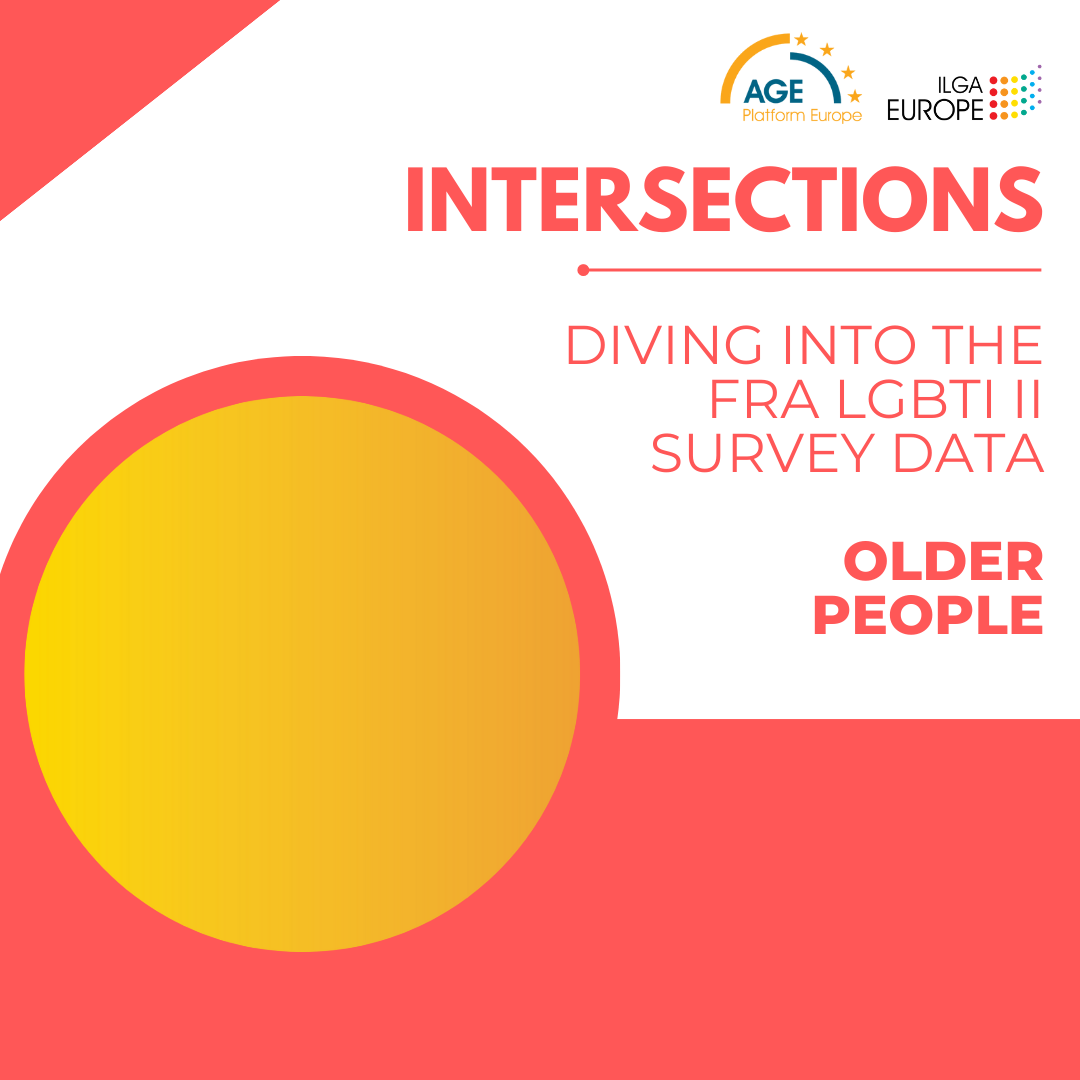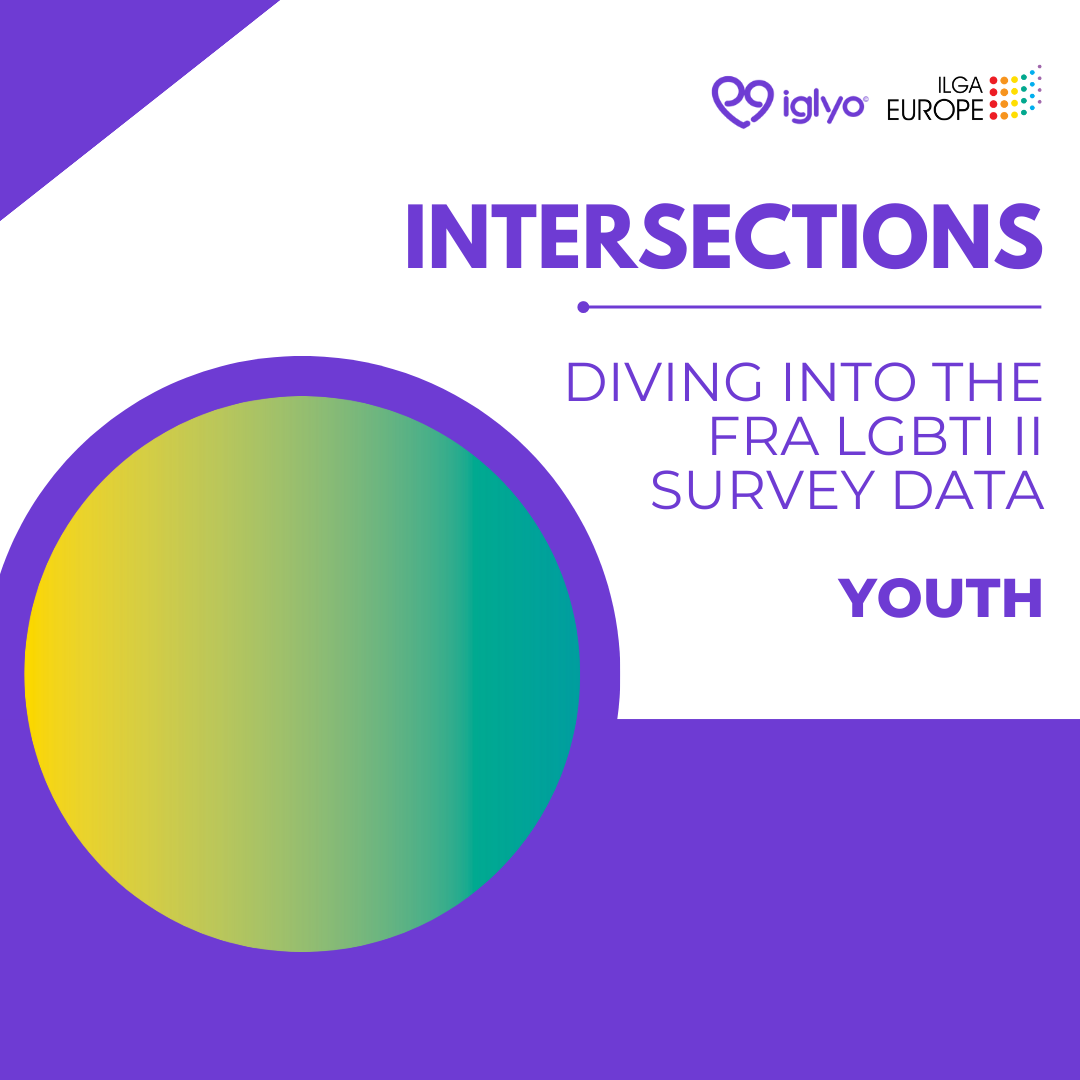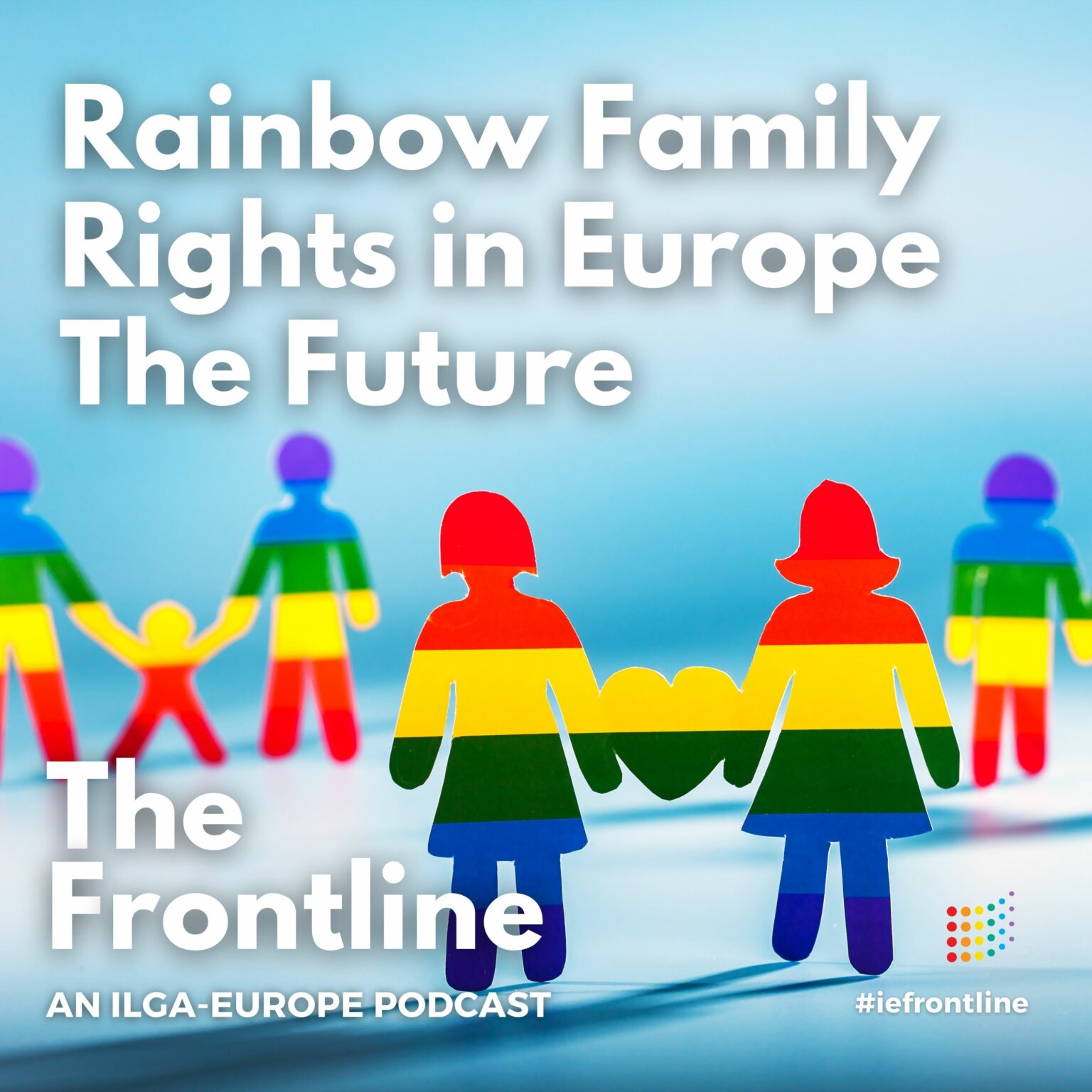Intersections: The LGBTI II Survey – Older People Analysis

Disaggregated data, which can look deeply into the lived experiences of marginalised people, is a key demand of LGBTI and other human rights groups. With this in mind, over the last year ILGA-Europe have been partnering with a variety of NGOs in the region to analyse the FRA 2019 LGBTI Survey II data and pull out experiences of those experiencing intersectional marginalisation. This work is based on analysis co-commissioned by ILGA-Europe and TGEU.
This briefing on older people summarises the findings of data analysis disaggregating the responses of older LGBTI people from the responses provided by all LGBTI respondents to the 2019 FRA LGBTI Survey II, in order to show the differences in their lived experiences. In order to make sure that the point of view of older LGBTI people was represented in full, this document is the result of a collaboration between ILGA-Europe ad AGE Platform Europe, both contributing in the data analysis and drafting of the briefing.
Intersections: The LGBTI II Survey – Youth Analysis

Disaggregated data, which can look deeply into the lived experiences of marginalised people, is a key demand of LGBTI and other human rights groups. With this in mind, over the last year ILGA-Europe have been partnering with a variety of NGOs in the region to analyse the FRA 2019 LGBTI Survey II data and pull out experiences of those experiencing intersectional marginalisation. This work is based on analysis co-commissioned by ILGA-Europe and TGEU.
This, our briefing on LGBTI Youth, in which we created sub-populations of respondents aged 15-24, 15-17 and 18-24, and compared them with all respondents to the survey, was carried out alongside the International Lesbian, Gay, Bisexual, Transgender, Queer & Intersex Youth and Student Organisation (IGLYO). In coming months, watch this space for further in-depth briefings on intersex people, religious and ethnic minorities, older LGBTI people, trans people, and others.
Listen: Rainbow Family Rights in Europe in 2021 and Beyond

ILGA-Europe’s podcast The Frontline presents a brand-new mini-series looking at the many issues affecting LGBTI parents and their children across Europe.
Presented by ILGA-Europe, The Frontline is a podcast about LGBTI activism and lives in Europe and Central Asia. Deep-diving and analysing from a unique and informed perspective, The Frontline aims to bring you to the core of queer activism and give you an understanding on the complexities of what’s happening, why it’s happening, the wins and the losses, the challenges and commonalities, and the extraordinary ways in which the work of those on the frontlines continues in a rapidly changing world.
The latest mini-series from The Frontline explores rainbow family rights, and the lack thereof, in Europe. We look at two landkark cases being taken to the European courts, explore partnership rights in the Western Balkans and Ukraine, discuss the rights of trans parents, and evaluate the issues that are coming up beyond 2021.
Here are all the episodes:
Part 1: The Coman Case Three Years On
We meet Adrian Coman from Romania. Three years ago, Adrian and his partner Cole were successful bringing their case to the Court of Justice of the European Union, which judged that same-sex spouses are fully recognised as spouses under the EU freedom of movement directive. As a result, Adrian and Cole, who is American, should have been granted a residence permit in Romania. To this day, the judgement has not been enacted by the Romanian state, and in March 2021, the couple took their case to the European Court of Human Rights to finally get their rights recognised. We’re also joined by Arpi Avetisyan, head of litigation at ILGA-Europe, to talk about the wider implications of the latest developments in the Coman case.
Part 2: Baby Sara, Stateless Child
We meet Kalina and Jane, from Bulgaria and the UK respectively. Because their daughter Sara was born in Gibraltar, she cannot claim UK citizenship via Jane, so the couple applied to have her registered in Bulgaria. The Bulgarian authorities refused, therefore leaving Baby Sara stateless.
Kalina and Jane brought a case against the Bulgarian authorities to the EU Court of Justice, which was heard in March 2021. They join us to talk about their current situation, the case, and what it means to their family. We’re also joined by Arpi Avetisyan, Head of Litigation at ILGA-Europe, to talk about the wider implications of the case.
Part 3: The Western Balkans
We’re joined by Danijel Kalezi?, president of the Governing Board of Queer Montenegro, which helped usher in legislation for civil unions for same-sex couples, which were signed into law last year, making Montenegro the second Western Balkans country, after Croatia, to do so. Danijel is with us to talk about the journey so far in Montenegro, and the state of play for same-sex partnership rights across the Western Balkans.
Part 4: At a Crossroads in Ukraine
Several pathways for partnership rights were part of the Ukraine took in EU-Ukraine Association agreement 2014–2016. Based on it the Ukrainian government developed a human rights strategy plan 2013–2019 which included specific commitments to LGBT rights, but many elements of this strategy were not implemented, and civil partnership was dropped from it. However, post-revolution and against the backdrop of Russia’s ongoing military intervention, it is a crossroads time for LGBTI and partnership rights in the country. We’re joined by activists Olena Shevchenko, from the Kyiv-based organisation, Insight and Andriy Maymulakhin, from Nash Mir in the city of Luhansk, about the outlook for partnership rights in Ukraine.
Part 5: The Rights of Trans Parents and their Children
In March 2021, Transgender Europe (TGEU) published the report, “Stuck on the swing: experiences of trans parents with freedom of movement in the EU”, in which 18 trans parents from across Europe shared their stories and thoughts. The report found that trans parents and their families face serious barriers when it comes to moving safely and freely across the European Union. In the fifth part of our mini-series, we talk to Senior Policy Officer with TGEU, Richard Köhler, and Slovenian trans-activist, Lea Aymard, one of the parents featured in the report, about the current state of play and ways forward.
Part 6: The Future
ILGA-Europe’s advocacy director, Katrin Hugendubel and Björn Sieverding from the Network of European LGBTIQ Families explore the issues coming down the line in terms of rainbow family rights, including direct child-parent recognition from birth, equal opportunities for children to find new parents by adoption or foster care, access to ART (including funding), and multi-parenting possibilities.
Silver Rainbow
- What is Silver Rainbow?
The campaign aims to raise awareness of the specific needs of older LGBTI persons and to share the best resources on the topic.
- How you can support Silver Rainbow:
We will be sharing videos, an animation, an infographic and lots of resources (from members and partners) on our website, through Facebook and via Twitter.
We would love you to get involved by sharing our posts, commenting on Facebook or chatting to us on Twitter using the hashtag #SilverRainbow
Fighting back against exclusion and invisibility – older people in the LGBTI movement:
Let older LGBTI people live healthy lives
Long term care
Let older LGBTI people enjoy long term care with dignity
UN International Day of Older Persons 2015
Let older LGBTI people shine
Joint policy paper: Equality for older lesbian, gay, bisexual, trans and intersex people in Europe
In the framework of the 2012 European Year for Active Ageing and Solidarity between Generations, AGE Platform Europe (AGE) and ILGA-Europe have decided to focus on the situation of older LGBTI people in Europe. In a joint policy paper, the two NGOs suggest best practices and policy recommendations to help older LGBTI people going through those life stage transitions.
The policy paper ‘Equality for older lesbian, gay, bisexual, trans and intersex people in Europe’ is the first of its kind at European level. AGE and ILGA-Europe are calling on actions both at European and national levels; the two NGOs call for a comprehensive and coherent approach to tackle multiple discrimination of older LGBTI people, and for development of adequate policy responses to support ageing LGBTI communities on a national and as well as on an European level.
In the policy paper AGE and ILGA-Europe have identified four main challenges faced by older LGBTI people:
- The lack of recognition of same-sex couples has an impact on their access to social protection and on their financial security. This becomes particularly worrying when people get older and cannot ensure that their partner will have access to their pensions and assets.
- Older LGBTI people may have specific health needs and may face ongoing stigmatisation in the field of healthcare.
- Some elderly LGBTI people experience social exclusion and invisibility and cannot rely on the same family support as other older people.
- This raises specific challenges related to long-term care, inclusive of older LGBTI people needs.